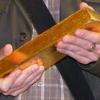I suggest reading up on the positive effects of Inositol and IP3 before going on a Lithium binge.
Circadian rhythms (when autophagy takes place) and the half life of these substances needs to be looked at to get cycling them right. A combined effort on this front would be nice!
These recent posts are about finding a combination of supps to upregulate autophagy, not simply popping Lithium!
NB the highlighted bits in post # 49 summarised below:
Lithium induces autophagy in an mTOR-independent manner.
But it also activates mTOR.
This mTOR activation partially inhibits the autophagy-inducing effects of lithium.
Rapamycin impedes the activation of mTOR that occurs with lithium, eliminating the undesirable mTOR activation.
Combining rapamycin and lithium enables greater autophagic clearance.
Besides Lithium, other mTOR-independent autophagy inducers, are:
- trehalose
- calpastatin
- SMERs (have you considered looking up SMERs...!?)
Combining any/some/one of these with an mTOR inhibitor results in a greater up-regulation of autophagy. (additive effect)
This combined therapy approach should minimize side effects too.
Now Rapamycin is an mTOR inhibitor.
but it's also an immunosuppressant increasing the risk of cancer.
It also causes glucose tolerance and insensitivity to insulin etc.
So you want an mTOR inhibitor without those side effects.
Pterostilbene
see post # 49..!
Its also nice to use supps with multiple positive effects... like Pterostilbene and BHT IMHO.
If you want to know how much of what and when to take it; join the club and plz do some research!



























































